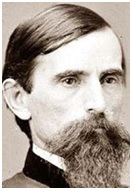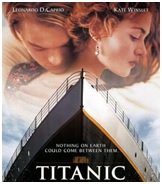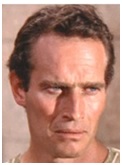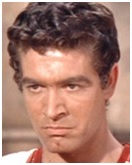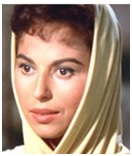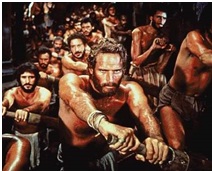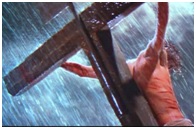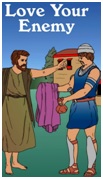|
 |
|
 |
|
|
||
Ben-Hur - Ethics and Leadership
Ben-Hur (1959)
Famous for... Its chariot race with 15,000 extras on an 18 acre site!
Set in... Judea (now Israel and Palestine) during the life of Jesus.
Based on... The 1880 novel by the American Civil War general, Lew Wallace (pictured right).
Director William Wyler Oscars Eleven (including best film, best director and best actor (Charlton Heston) This is the highest number for any film, only equalled by:
Key characters Judah Ben-Hur (Charlton Heston), Jewish hero (pictured right). Messala (Stephen Boyd), his Roman friend and then rival.
The story The birth of Jesus is shown and
then in 26 AD, Messala returns to Jerusalem, his childhood home, as Roman deputy
governor of Judea. Massala (pictured right):
Ben-Hur:
The new Roman governor of Judea, Gratus, arrives in Jerusalem, watched by Ben-Hur and his sister, Tirzah, from their roof. Tirzah dislodges a roof tile which frightens Gratus’s horse and injures him. It is seen by the Romans as an assassination attempt. Massala arrests Ben-Hur and his family, even though he discovers it was an accident. Ben-Hur vows revenge. On the way to being a galley slave, he stops at Nazareth where the Roman guards
refuse him water. But a carpenter (Jesus,
unbeknown to Ben-Hur) kindly gives him some. Three years later, Ben-Hur is still a galley slave, rowing in a Roman ship (pictured right), captained by Quintus Arrius, who admires his courage and determination to be free. In a sea battle, Arrius:
Having escaped, Ben-Hur saves him, and the victorious (and grateful) Arrius:
After seven years away, Ben-Hur:
Balthasar tells him to:
When Ben-Hur goes home, Esther (who didn’t marry after all) also tells him to love. In a spectacular chariot race (pictured right), Ben-Hur races against Massala. Messala:
Despite Ben-Hur’s forgiveness and compassion, the dying Massala spitefully tells him that both his mother (Miriam) and sister (Tirzah, pictured right) have leprosy. He rushes to them in the leper colony and finds Esther giving them food . Esther and Balthasar listen to Jesus’s Sermon on the Mount about loving your enemies. But Ben-Hur still hates the Romans, and Esther tells him he has become as horrible as Massala. Ben-Hur and Esther try to take Miriam and Tirzah (who is dying) to Jesus to heal them. But Pontius Pilate, the new Roman governor, has just sentenced him to crucifixion. As Jesus carries his heavy cross, Ben-Hur recognizes him as the man who gave him water and does the same for
him. The crucifixion (pictured right) transforms Ben-Hur’s hatred into love, inspired by Jesus’s last words: “Father, forgive them, for they know not what they do”. After his death, Miriam and Tirzah are miraculously healed during a fierce rainstorm.
Lessons for ethics and leadership
1. Love your enemies Ben-Hur learns from Jesus and Esther that love and friendship are better and more powerful than vengeance and hatred (which destroy Massala). “And I felt his voice take this sword out of my hand”, Ben-Hur tells Esther about Jesus. Messala is prepared to sacrifice Ben-Hur and his family, despite knowing they are innocent of trying to assassinate the governor.
2. Hatred makes you horrible Hatred eats away at Ben-Hur’s soul until he eventually becomes as big a monster as Massala. 3. Lead by love Jesus’s selfless compassion and humility make him an inspirational leader. In contrast, Messala’s attempt to rule by fear and violence ends with his defeat and death.
4. Determination by purpose Ben-Hur’s hatred and desire for revenge increase his resolve to free himself from slavery. But then, through Jesus’s example, he is motivated by love and forgiveness. 5. Ideals are important Ben-Hur is always driven by the burning desire to:
6. Never give up hope Ben-Hur:
His mother and sister are given a fresh start after being miraculously cured of leprosy.
Key quotes on religion and ethics And I felt his voice take this sword out of my hand, Ben-Hur (talking about Jesus). He gave me water and a heart to live, Ben-Hur (talking about Jesus at his crucifixion). Forgiveness is greater and love more powerful than hatred, Esther
Key quote on creativity and change You ask how to fiight an idea. I'll tell you how. With another idea, Messala
Key quote on learning Where there is greatness, great government or power, even great feeling or compassion, error also is great. We progress and mature by fault, Pontius Pilate
Two film websites to recommend 1. filmsite.org (run by Tim Dirks). 2. aveleyman.com (run by Tony Sullivan) |
|
|
||
|
|
||
| Copyright © wisdomtowin.com 2025 All Rights Reserved | ||
|



